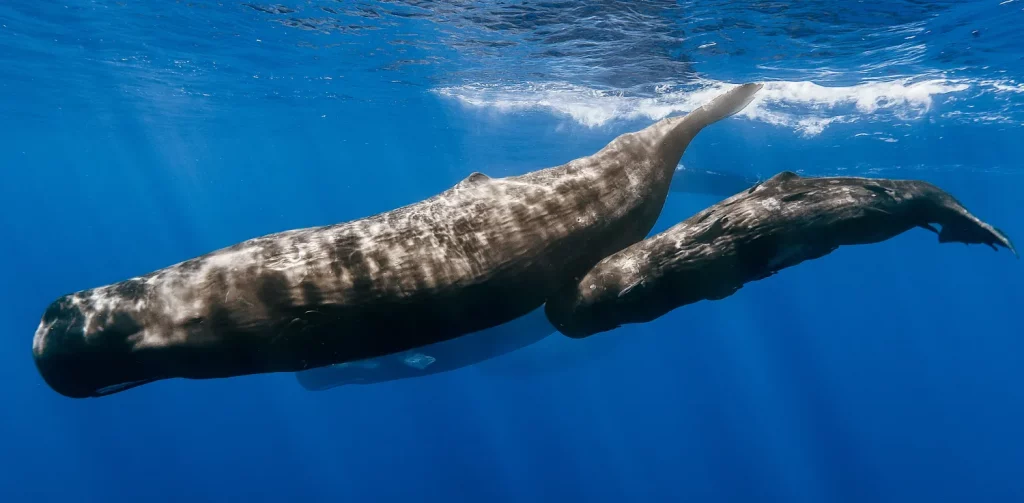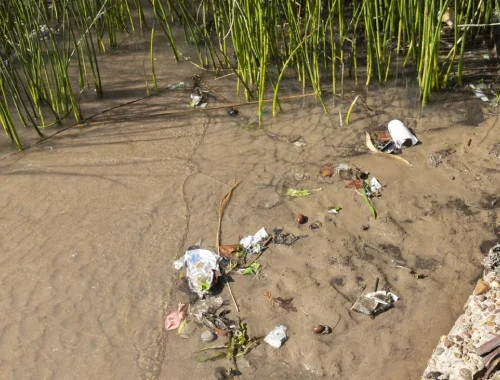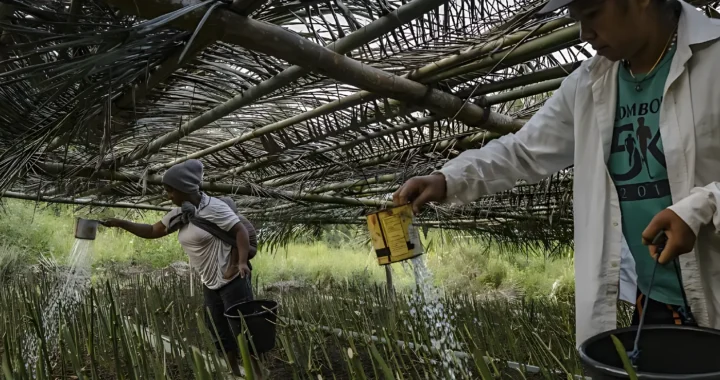Dominica Commits to Establish the First-Ever Sperm Whale Reserve

Photo: Wikimedia.
The links between humans, biodiversity, and ecosystems are undeniable. These aspects affect each other—one move in one aspect can create changes in others. For instance, the planned first-ever sperm whale reserve in Dominica will impact conservation, tourism, shipping, fishing, and carbon emissions. How?
Sperm Whales in Dominica
Sperm whales (Physeter macrocephalus) are the largest toothed whale species, spanning 15 meters in length on average. While they are found worldwide, the western coast of the tiny island nation Dominica is a critical feeding and nursing ground for sperm whales.
Sperm whales form clans, strong matrilineal family units with unique “dialects” of click patterns. Most sperm whales in Dominica are part of the Eastern Caribbean Clan and do not travel far from home—unlike others. Experts estimate that fewer than 300 sperm whales live in Dominican waters.
After a substantial drop starting in about 2008, the sperm whale population in this region has been steadily declining by about 3% each year. The fishing, shipping, and tourism sectors are their biggest threats.
Dr. Shane Gero, founder of The Dominica Sperm Whale Project, said, “These whales are entangled in fishing gear, ingest our plastic trash that washes into the sea, engulfed in our noise which radiates deep into the ocean where they hunt for squid, and are hit by ships, a particularly heightened threat in the Caribbean, where everything is imported and many vessels transit between islands.”
Sperm Whale Reserve
In November 2023, the government of Dominica announced its plan to establish the world’s first-ever sperm whale reserve off its western coast in the Caribbean Sea. The reserve will span 788 square kilometers, covering 3% of Dominica’s exclusive economic zone (EEZ).
Dominica’s Prime Minister Roosevelt Skerrit called the sperm whales citizens and said, “Their ancestors likely inhabited Dominica before humans arrived. We want to ensure these majestic and highly intelligent animals are safe from harm and continue keeping our waters and our climate healthy.”
Scientists are involved in the establishment plan, and officers and observers will be stationed to reinforce new regulations. These new regulations will strictly regulate—not ban—fishing activities, vessel traffic, designating corridors, and tourism activities.
Carbon Sink, Marine Conservation, and Sustainable Tourism
Sperm whales also offer a significant opportunity for carbon sink, specifically their feces. Their nutrient-rich feces encourage phytoplankton blooms, which capture carbon dioxide from seawater.
“When this plankton dies, it sinks to the bottom of the ocean to the deep sea with carbon in it. It then becomes a carbon sink. The more whales in the ocean, the more it will be able to help us mitigate climate change,” said Pristine Seas founder Enric Sala. According to Sala’s estimates, Dominican sperm whales could trap 4200 metric tonnes of carbon every year.
“Dominica has the opportunity to show the world how to reconcile marine conservation with responsible use of the sea. A well-designed and regulated whale tourism operation can bring in economic revenue to offset the direct costs of managing and enforcing the reserve – and bring additional benefits to Dominica’s people,” said Kristin Rechberger, the CEO of Dynamic Planet and advisor on the reserve plan.
She concluded, “With a proper conservation business plan, protecting nature is achievable by all countries, large and small.”
Thank you for reading!
Green Network Asia – International Annual Individual Membership supports your personal and professional growth with unlimited online access to our “Exclusive Content” platform purposefully designed to showcase cross-sectoral insights on sustainable development and sustainability in the Asia Pacific and beyond. Enjoy the Membership benefits, including -but not limited to- public policy & regulatory updates, easy summaries of research findings & reports, and impact stories from governments, businesses, and civil society.

Nazalea Kusuma
Naz is the Manager for Editorial-International at Green Network Asia. She once studied Urban and Regional Planning and has lived in multiple cities across Southeast Asia. She is a passionate and experienced writer, editor, translator, and creative designer with almost a decade worth of portfolio.


 Upholding the Machángara River’s Rights of Nature Against Pollution
Upholding the Machángara River’s Rights of Nature Against Pollution  Accelerating Gender-Responsive Disaster Management with Sendai Gender Action Plan
Accelerating Gender-Responsive Disaster Management with Sendai Gender Action Plan  ASEAN and the EU Support Sustainable Connectivity with a Higher Education Program
ASEAN and the EU Support Sustainable Connectivity with a Higher Education Program  Australia Proposes Right to Housing Bill to Tackle Housing Crisis
Australia Proposes Right to Housing Bill to Tackle Housing Crisis  World Cities Summit 2024: A Trigger to Help Build a Sustainable Singapore
World Cities Summit 2024: A Trigger to Help Build a Sustainable Singapore  Mama Bambu: How Women in Flores, Indonesia Take Part in Environmental Conservation
Mama Bambu: How Women in Flores, Indonesia Take Part in Environmental Conservation